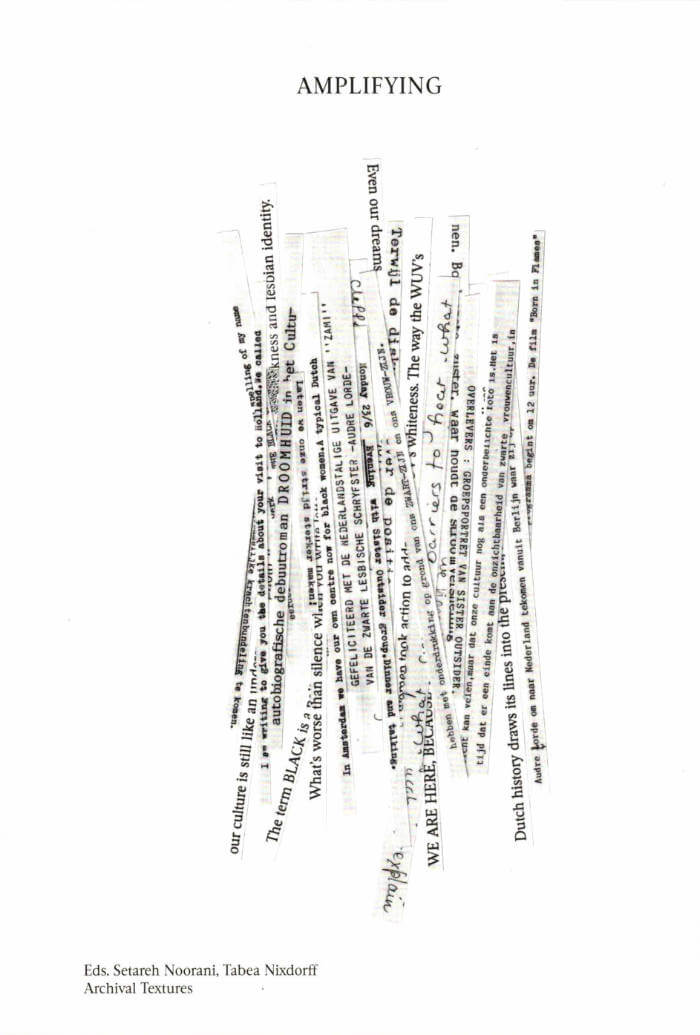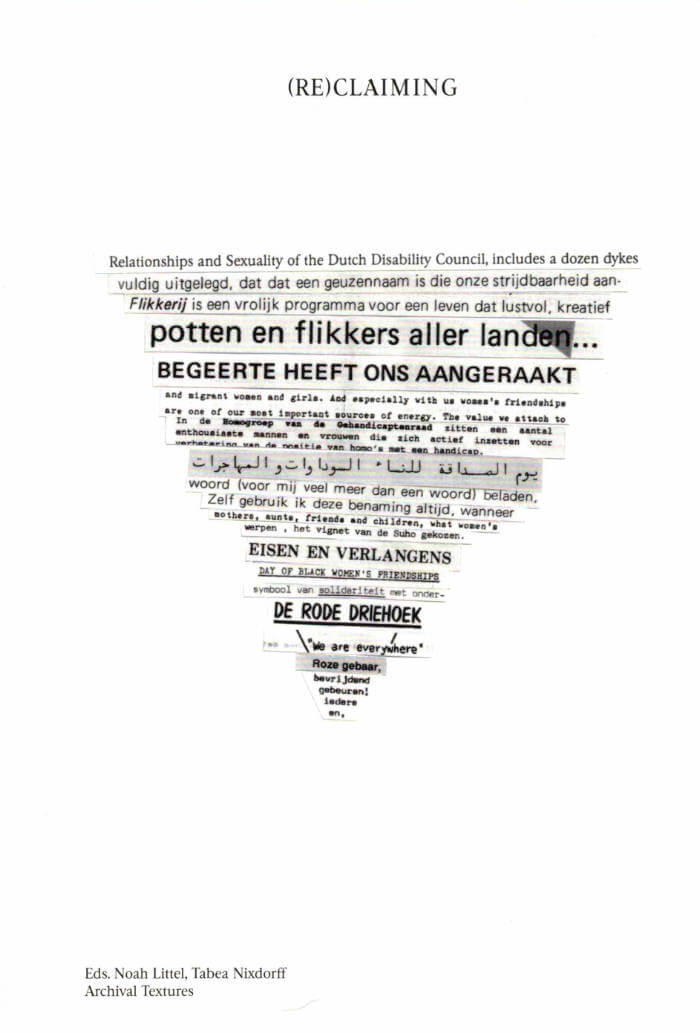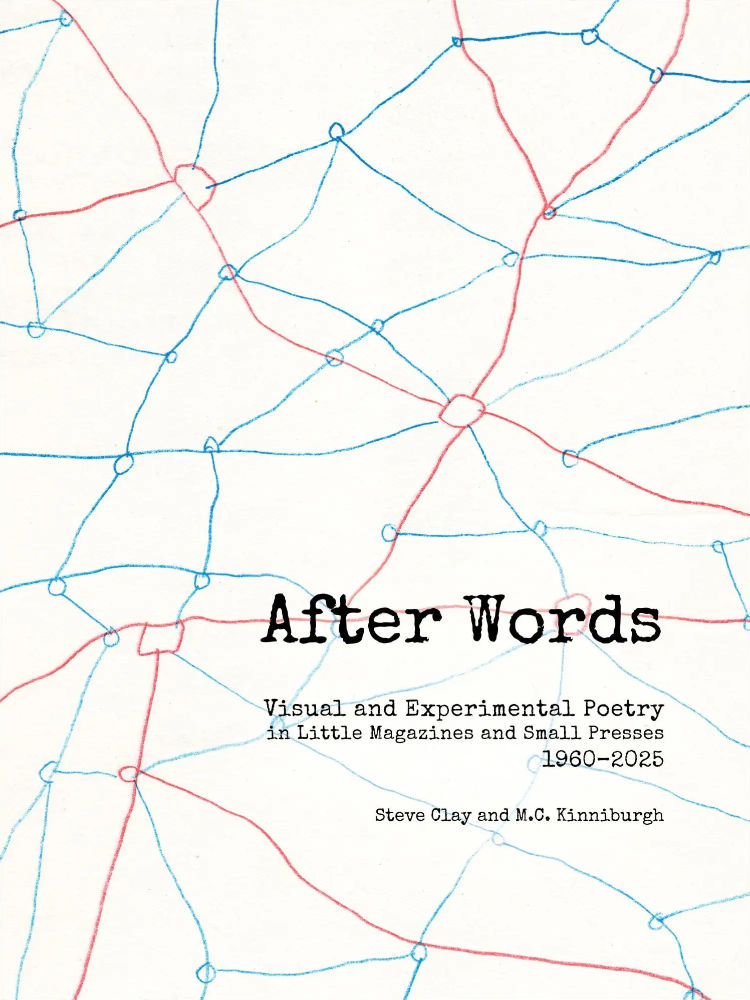
Archival Textures - Amplifying
Setareh Noorani ed., Tabea Nixdorff ed.
The book Amplifying brings together written manifestations that trace the beginnings of Black feminism in the Netherlands. Amplifying means giving credit to, mentioning, over and over, and supporting the circulation of sources and authors that are formative for our thinking and practices. In the early 1980s, the political term “black” (zwart in Dutch) was introduced in the Netherlands to build alliances between women from different diasporic communities, who were faced with racism in their everyday lives.
Archival materials featured in this book include the original manuscript of the essay “Survivors: Portrait of the Group Sister Outsider” (1984), written by Gloria Wekker in collaboration with the Black lesbian literary group Sister Outsider, the seminal speech Statement of the Black Women’s Group (1983) by Julia da Lima, a contextualizing interview with Tineke E. Jansen and Mo Salomon (1984), excerpts from the book launch of Philomena Essed’s Everyday Racism (1984), and short texts authored by other Black feminist groups in the Netherlands, such as Zwarte Vrouwen & Racisme, Flamboyant, Ashanti, and Groep Zwarte Vrouwen Nijmegen.






